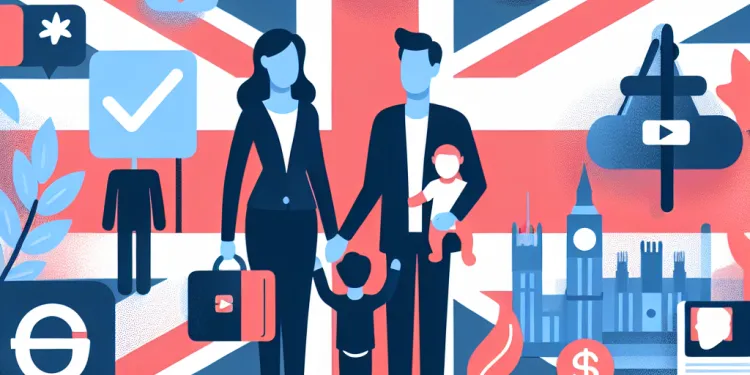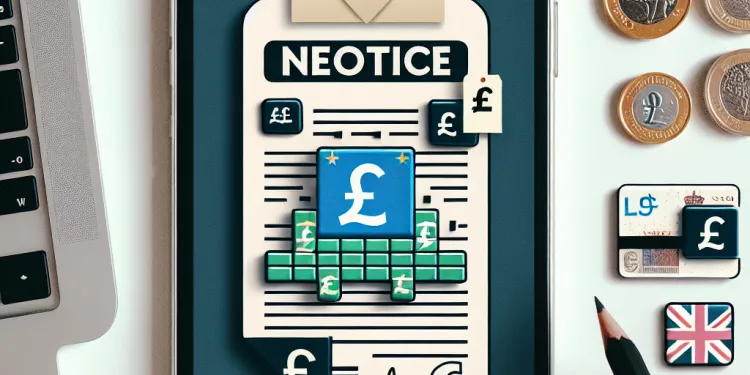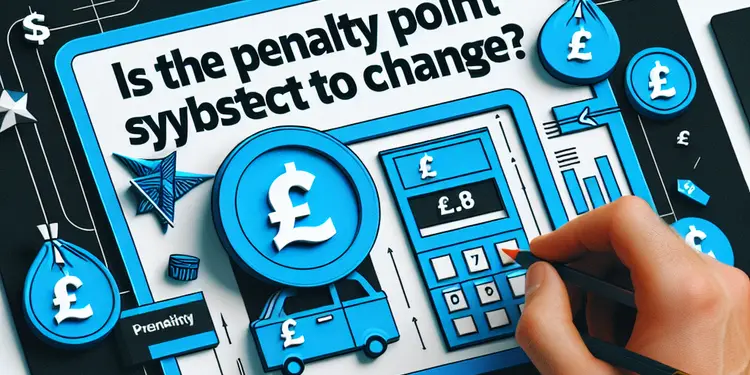
Find Help
More Items From Ergsy search
-

What if my circumstances change?
Relevance: 100%
-

What should I do if my circumstances change?
Relevance: 91%
-

Do I have to repay the Winter Fuel Payment if my circumstances change after I've received it?
Relevance: 77%
-

Are there changes to the eviction process?
Relevance: 38%
-

Have the rules for changing a child's name in family court changed in 2026?
Relevance: 36%
-

Can SEND status change over time?
Relevance: 36%
-

Navigating the Changes to Parental Leave Regulations
Relevance: 35%
-

Universal Credit Adjustments: What Recent Changes Mean for Claimants
Relevance: 34%
-

Has the notice period for eviction changed?
Relevance: 34%
-

How often do you need to change a stoma bag?
Relevance: 34%
-

How will dividend taxation change in April 2026?
Relevance: 33%
-

How often do wage rates change in the UK?
Relevance: 33%
-

How might these changes affect taxpayers on PAYE?
Relevance: 33%
-

How soon should I prepare for the 2026 tax changes?
Relevance: 32%
-

Can I change my NHS dentist?
Relevance: 31%
-

Should I change my passwords regularly?
Relevance: 31%
-

Are there implications for student loan repayments with 2026 changes?
Relevance: 31%
-

What should I do if my financial situation changes?
Relevance: 31%
-

Is UK air quality changing?
Relevance: 31%
-

Will changing my surgery date impact my waiting time?
Relevance: 31%
-

Can lifestyle changes replace the need for weight loss jabs?
Relevance: 31%
-

Are there changes regarding advertising e-cigarettes?
Relevance: 30%
-

Will the state pension amount change with the age increase?
Relevance: 30%
-

Are there further changes expected after 2026?
Relevance: 30%
-

Are climate changes affecting mosquito populations in the UK?
Relevance: 30%
-

Is there a change in National Insurance rates for 2026?
Relevance: 30%
-

Is the penalty point system subject to change?
Relevance: 30%
-

Are there any changes to the driving license categories?
Relevance: 30%
-

Will changing my password secure my hacked account?
Relevance: 30%
-

Has the EV grant amount changed recently?
Relevance: 29%
-

What is the impact of the 2026 changes on grandparent visitation rights?
Relevance: 29%
-

Who will be affected by the state pension age changes in 2026?
Relevance: 29%
-

Has the process for adoption changed in 2026?
Relevance: 29%
-

How will the changes in pension age affect retirement planning?
Relevance: 29%
-

Navigating Post-Brexit Family Law Changes
Relevance: 29%
-

Will climate change affect the 2026 flu season?
Relevance: 29%
-

Can I take weight loss jabs without changing my diet or exercise?
Relevance: 29%
-

Can I change my DVSA Theory Test date?
Relevance: 29%
-

Are there lifestyle changes recommended with Baxdrostat?
Relevance: 29%
-

How have child custody laws changed in 2026?
Relevance: 29%
Understanding the Impact of Changed Circumstances
Life is full of changes, and sometimes those changes can significantly impact your personal or financial situation. In the UK, it is important to assess the impact of any change in your circumstances and take appropriate steps. Changes could include employment status, family situations such as marriage or divorce, or health-related issues. Recognizing the change and understanding how it affects your life will help you make informed decisions.
Inform Relevant Authorities
If your circumstances change, it's crucial to inform the relevant authorities and institutions in a timely manner. For example, if your employment status changes, you may need to notify HM Revenue and Customs (HMRC) to ensure you are taxed correctly. Similarly, changes in household composition should be reported to your local council if you receive council tax benefits. Keeping the authorities updated helps prevent issues such as overpayments, penalties, or legal difficulties.
Review Your Financial Situation
Changes in circumstances often directly impact your financial situation. This may warrant a review of your budget, savings, and expenditures. You might need to adjust your budget to accommodate new expenses or reduced income. Consider contacting your bank or financial advisor for advice on managing debts or investments. If necessary, you could also seek support from charitable organizations offering financial advice and assistance.
Update Legal and Personal Documents
Major life changes such as a marriage, divorce, or the birth of a child require updating various legal and personal documents. Ensure your will, insurance policies, and other important documents reflect your current situation. Updating these documents helps protect your interests and ensures that your decisions are honored. Additionally, informing your employer of any personal changes that may affect your employment terms is a good practice.
Claim Applicable Benefits
If your circumstances change, you might be eligible for new or additional benefits. The UK has a range of support mechanisms, so it's important to check what you might be eligible for. For example, if you lose your job, you might qualify for Universal Credit or Jobseeker’s Allowance. The government’s website can be a valuable resource for exploring benefits and understanding eligibility criteria.
Seek Support and Guidance
Dealing with changes can be overwhelming, and seeking support can be beneficial. Consider reaching out to family, friends, or professional counselors for emotional support. Organizations such as Citizens Advice can offer valuable guidance on dealing with changes in circumstances. By seeking help, you can navigate the transition more smoothly and ensure you are making the right decisions for your future.
Understanding Changes in Your Life
Life changes happen a lot. These changes can affect your life and money. In the UK, it's important to see how a change affects you and what you need to do. Changes can be about your job, family (like getting married or divorced), or health. Knowing the change helps you make good decisions.
Tell the Right People
If things change, you need to tell the right people quickly. For example, if your job changes, tell HM Revenue and Customs (HMRC) so your taxes are right. If your family changes, tell the local council if you get help with council tax. Keeping them informed helps you avoid problems like paying too much or getting into trouble.
Check Your Money
Changes can affect your money. You might need to look at your spending and saving. You may need to change your budget because of new costs or less money coming in. You can talk to your bank or a money expert about debts or savings. Charities can also help you with money advice if you need it.
Change Important Papers
Big life changes, like getting married, divorced, or having a baby, mean you need to update important papers. Make sure your will and insurance show your new situation. This protects you and what you care about. Also, tell your boss at work if things at home change and it affects your job.
Apply for the Right Benefits
If your life changes, you may get new help or benefits. The UK has different supports, so check what you can get. For example, if you lose your job, you might get Universal Credit or Jobseeker’s Allowance. The government’s website can help you see what benefits you can apply for.
Ask for Help
Changes can be hard, so asking for help is a good idea. Talk to family, friends, or counselors for support. Groups like Citizens Advice can help you with advice on changes. By getting help, you can handle the change better and make good choices for yourself.
Frequently Asked Questions
What should I do if I experience a significant life event?
Evaluate how the event affects your current plans and consider reaching out to professionals for advice if necessary.
How do I update my financial plan if my income changes?
Reassess your budget, adjust your savings and investment goals, and speak with a financial advisor if needed.
What steps should I take if I lose my job?
Apply for unemployment benefits, update your resume, network, and start searching for new job opportunities.
How can I prepare for unexpected medical expenses?
Review your health insurance, maintain an emergency fund, and explore payment plans with healthcare providers.
What should I do if I decide to move to a new city?
Research the new location, plan your budget, and explore housing and job opportunities in the area.
How do I adjust my retirement plans if my financial situation changes?
Review your retirement savings, adjust contributions if necessary, and consult a financial planner.
What are the first steps if I’m going through a divorce?
Seek legal advice, gather financial documents, and consider personal counseling or support groups.
How do I manage debt if my financial circumstances worsen?
Create a realistic budget, prioritize debt payments, and explore options like debt consolidation or negotiation.
What should I do if my health condition changes?
Consult with your healthcare provider, update your health insurance if needed, and adjust your daily routine as recommended.
How can I adapt my career goals if I decide to change industries?
Assess your skills, pursue relevant education or certifications, and network with professionals in the new industry.
What should I consider if I receive an unexpected inheritance?
Seek financial or legal advice, consider your long-term goals, and plan how to allocate the inheritance wisely.
How do I handle a sudden increase in my living expenses?
Review your budget, identify areas to cut back, and consider ways to increase your income if possible.
What steps should I take if I face a natural disaster?
Ensure personal safety, contact insurance providers, and seek assistance from local emergency services.
How do I update my estate plan after a major life change?
Review your will and trusts, update beneficiaries, and consult an estate planning attorney.
What should I do if my child’s education plans change?
Explore alternative education options, review savings plans, and discuss changes with your child.
How can I manage stress when my circumstances change suddenly?
Practice stress-relief techniques, seek support from friends or professionals, and stay focused on actionable steps.
What actions should I take if my relationship status changes?
Consider financial implications, seek emotional support, and review any shared financial responsibilities.
How do I adjust my lifestyle if I need to care for a family member?
Plan for time management, explore resources and support for caregivers, and adjust your schedule if needed.
What should I do if I need to adjust my long-term goals due to change?
Reflect on the implications, set new realistic goals, and make a structured plan to achieve them.
How can I ensure I remain adaptable to future changes?
Stay informed, build a flexible mindset, and maintain a strong support network for guidance and assistance.
What should I do if something big happens in my life?
When something big happens, like moving to a new house, getting a new brother or sister, or losing a pet, it can make you feel a lot of things. Here is what you can do:
- Talk: Tell someone you trust how you feel. This could be a family member, teacher, or friend.
- Write: Write down your thoughts and feelings in a notebook. This can help you understand your feelings better.
- Ask for help: It is okay to ask for help. Adults can help you find ways to feel better.
- Use tools: Sometimes drawing pictures or using fun apps can help you say what you feel.
- Breathe: Take deep breaths to help you stay calm.
Remember, it is okay to have big feelings, and there are people and tools to help you.
Think about how this event changes what you are planning to do now. If you need help, ask an expert for advice.
What do I do if I earn more or less money?
If you get more or less money, you might need to change your money plans. Here is what you can do:
- Write down how much money you earn now.
- Think about what you spend money on.
- Decide if you need to save more or less money.
- Talk to a money helper if you need help.
Using easy tools like a calculator or asking someone to help can make it easier.
Take another look at your money plan. Change how much you save and where you put your extra money. If you need help, talk to a money expert.
What should I do if I lose my job?
If you lose your job, here are some steps to help you:
- Stay calm: It's normal to feel upset. Take deep breaths.
- Talk to someone: Speak to a friend or family. They can help.
- Know your money: Check how much money you have. Make a plan for how to use it.
- Look for help: Find out about unemployment benefits. These can help with money.
- Update your resume: Make sure your work documents are ready. This helps when you apply for jobs.
- Search for jobs: Look online or in newspapers to find new jobs.
- Learn new skills: Try free online courses. They can help you find a new job.
Supportive tools can help you manage:
- Job websites: Try websites to look for jobs.
- Money apps: Use apps to keep track of your spending.
- Talk to someone: Support groups and hotlines can listen and help.
Ask for help if you lose your job. Fill out forms to get money while you find a new job. Make your work history easy to read. Talk to people who can help you find a job. Look for new jobs you can do.
How can I get ready for surprise medical bills?
Medical bills can come when you don't expect them. Here are some simple steps to help you get ready:
- Save a little money every month for health costs.
- Ask your doctor about costs before you get any treatment.
- Look at health insurance plans to see if they help with costs.
- Talk to someone you trust if you need help understanding bills.
- Use tools like budgeting apps to help you save money.
Check your health insurance, save money for emergencies, and ask doctors or hospitals about ways to pay a little at a time.
What should I do if I want to move to a new city?
Here are some simple steps you can take if you are thinking about moving:
- Make a list of things you need, like a new home, schools, and stores.
- Visit the city to see what it is like.
- Ask for help from friends or family who know the area.
- Use maps and apps to learn more about the city.
- Plan your move, like packing and finding a moving truck.
You can use tools like a calendar to keep track of your plans, and ask someone you trust for support.
Learn about the new place you're moving to. Make a plan for your money, and look for places to live and jobs there.
What should I do with my retirement plans if I have more or less money?
If you find you have more money or less money:
- Think about the money you have now.
- Decide if you can save more or need to save less for later.
- Talk to a money expert if you need help.
Here are some tips:
- Use a calculator to see how much money you need.
- Make a list of important things you spend money on.
- Set small goals to save money bit by bit.
Tools like calendars or phone apps can help you remember to save!
Look at your savings for when you stop working. Add more money if you need to. Talk to someone who knows about money, like a financial planner, for help.
What should I do first if I am getting a divorce?
Getting a divorce means you and your partner are ending your marriage. This can be a big change. Here are some simple steps to help you:
- Talk to someone: Speak to a friend or family member you trust about how you feel.
- Find a helper: A lawyer can help you understand the rules. You can ask them questions.
- Write things down: Make a list of things you and your partner need to agree on, like money and where to live.
- Take care of yourself: It’s important to eat well, sleep, and relax. Doing fun things can help you feel better.
- Use helpful tools: Try using apps or websites that can guide you. They can show you what to do next and help you stay organized.
Remember, you are not alone. There are people and tools that can help you through this time.
Talk to a lawyer, collect your money papers, and think about talking to a counselor or joining a support group.
What can I do about money I owe if I have less money coming in?
Make a simple plan for your money. Pay back the money you owe first. You can also try to put your debts together or talk to the people you owe money to. Using a calculator can help you keep track.
What to Do if Your Health Changes
Talk to your doctor. Check if your health insurance is up to date. Change your daily habits if your doctor says so.
How can I change my job goals if I want to work in a different industry?
Here are some steps to help you:
- Think about what you like and what you are good at.
- Learn about the new industry. You can read books, watch videos, or talk to people who work there.
- Make a new plan for your job. Write down what steps you need to take.
- Try to learn new skills. You can take classes or find online courses.
- Make a list of companies you want to work for.
- Talk to friends or family who can help you. They might know someone in the new industry.
Tools that can help:
- Internet: Look up information about the new industry.
- Online courses: Websites like Khan Academy or Coursera offer free lessons.
- Network: Reach out to people you know who can give advice.
Check what you are good at, get the right education or certificates, and talk to people who work in the new field you are interested in.
What to Think About if You Get a Surprise Inheritance
If you get money or things you didn't expect, here are some things to think about:
- Talk to someone who knows about money. They can help you make good choices.
- Think about saving some of the money for later.
- Decide if you want to buy something you need, like a house or car.
- You can give some money to people or causes you care about.
Remember, it's okay to ask for help. You can use tools like a calculator to plan, or write down your ideas on a piece of paper. Take your time and ask questions if you need to.
Ask a money expert or a lawyer for help. Think about what you want in the future. Make a plan for using the money you got in a smart way.
What should I do if my living costs go up a lot?
It's important to stay calm. Here are some steps you can follow:
- Make a list: Write down all the things you spend money on each month. This is called a budget.
- Check your budget: See if there are things you can spend less money on or stop buying.
- Look for deals: Use coupons or buy things on sale to save money.
- Ask for help: Talk to a family member or friend if you need advice.
- Use tools: Try using an app on your phone to keep track of spending.
These ideas can help you manage your money better and deal with increased costs.
Look at your money plan. Find places where you can spend less. Think about how you can earn more money if you can.
What should I do if a natural disaster happens?
Here are some steps you can follow if a natural disaster happens:
- Stay calm and follow instructions from adults or emergency workers.
- Find a safe place to go. This could be inside your house, like a basement, or an outside area away from buildings and trees.
- Have a plan to stay in touch with your family. Know a safe place where you can all meet.
- Keep a small bag with important things like water, snacks, a flashlight, and a first-aid kit.
- Listen to the radio, TV, or check the internet for news and updates.
Remember, practice and learning what to do can help you stay safe!
If reading is hard, try using audiobooks or speech-to-text tools to help understand this information better.
Make sure you are safe. Call your insurance company. Get help from the police or fire department nearby.
How do I change my estate plan after a big life event?
An estate plan is a plan for who will get your things when you die.
Sometimes big things happen in life, like getting married, having a baby, or someone passing away. When these things happen, you might need to change your estate plan.
Here's how you can do it:
- Talk to a lawyer to help you make or change your plan.
- Write down new instructions for who gets your things.
- Make sure your plan is clear and easy to understand.
- Keep your plan in a safe place where people can find it.
If you find reading hard, you can use these tools to help:
- Ask someone you trust to read with you and explain.
- Use pictures or drawings to help show your plan.
- Listen to audiobooks or recordings about estate planning.
Check your will and trusts. Make sure the right people get your things. Talk to a special lawyer who knows about planning for the future.
What to do if my child's school plans change
Look at different ways to learn, talk about how to save money, and chat with your child about any changes.
How can I stay calm when my life changes quickly?
Here are some tips to help:
- Take a Deep Breath: When you feel worried, stop and take a big, slow breath. This can help you feel calmer.
- Talk to Someone: Tell a friend or family member how you feel. It's okay to ask for help.
- Write it Down: Try writing about your feelings in a notebook. It can help to get your thoughts out.
- Take a Break: Do something you enjoy, like drawing, playing, or listening to music. This can help you relax.
- Make a Plan: Think about what you can do next. Making a simple plan can make things feel less scary.
Remember, it's okay to feel upset or worried. Everyone feels this way sometimes.
Try ways to relax when you feel stressed. Talk to friends or a professional if you need help. Keep your mind on tasks you can do now.
What should I do if my relationship changes?
If your relationship changes, here are some simple steps you can take:
- Talk to someone you trust about how you feel. This could be a friend or family member.
- Think about what you want to do next. Do you want to talk to your partner?
- Make sure you take care of yourself. Do things that make you happy.
- If you need help, ask for it. There are people who can support you, like a counselor.
Using a journal to write down your feelings can also help.
Think about money matters, talk to someone who can help with your feelings, and look at any money things you share with someone else.
How can I change my life to help a family member?
Taking care of someone in your family can be a big job. Here are some simple steps to help you:
- Make a list of things you need to do each day.
- Talk to other family members or friends who can help you.
- Take breaks and rest when you can.
- Use a calendar or planner to keep track of appointments and important dates.
- Look for support groups or resources in your community that can help. You can ask a doctor or a social worker for ideas.
Remember to take care of yourself too, so you can be strong and healthy.
Make a plan to use your time wisely. Look for help and support for people who care for others. Change your schedule if you have to.
What should I do if I need to change my long-term goals because something has changed?
If things change and you need to change your big goals, try this:
- Think about why the change is happening.
- Write down your new goal clearly.
- Make a simple plan with small steps to reach the new goal.
- Ask a friend or family member for help or ideas.
- Use a calendar or checklist to track your steps.
It's okay to change your goals. Stay positive and keep trying!
Tools like picture boards or apps with reminders can also help you stay on track.
Think about what happened. Set new goals that you can reach. Make a step-by-step plan to help you get there.
How can I stay ready for new things in the future?
It's important to be open to new ideas and learning. This helps you handle changes well. Here are some tips:
- Learn new things: Try reading new books or watching videos to know more.
- Ask for help: Talk to friends, teachers, or family if you don't understand something.
- Practice: Keep trying new activities. This makes you better over time.
- Stay positive: Believe in yourself and stay calm when things change.
Using pictures or videos can also make learning easier. Remember, it's okay to ask questions!
Stay updated. Keep your mind open to new ideas. Have friends and family to help you.
Useful Links
Have you found an error, or do you have a link or some information you would like to share? Please let us know using the form below.
-->
This website offers general information and is not a substitute for professional advice.
Always seek guidance from qualified professionals.
If you have any medical concerns or need urgent help, contact a healthcare professional or emergency services immediately.
Some of this content was generated with AI assistance. We’ve done our best to keep it accurate, helpful, and human-friendly.
- Ergsy carfully checks the information in the videos we provide here.
- Videos shown by Youtube after a video has completed, have NOT been reviewed by ERGSY.
- To view, click the arrow in centre of video.
- Most of the videos you find here will have subtitles and/or closed captions available.
- You may need to turn these on, and choose your preferred language.
- Go to the video you'd like to watch.
- If closed captions (CC) are available, settings will be visible on the bottom right of the video player.
- To turn on Captions, click settings .
- To turn off Captions, click settings again.
More Items From Ergsy search
-

What if my circumstances change?
Relevance: 100%
-

What should I do if my circumstances change?
Relevance: 91%
-

Do I have to repay the Winter Fuel Payment if my circumstances change after I've received it?
Relevance: 77%
-

Are there changes to the eviction process?
Relevance: 38%
-

Have the rules for changing a child's name in family court changed in 2026?
Relevance: 36%
-

Can SEND status change over time?
Relevance: 36%
-

Navigating the Changes to Parental Leave Regulations
Relevance: 35%
-

Universal Credit Adjustments: What Recent Changes Mean for Claimants
Relevance: 34%
-

Has the notice period for eviction changed?
Relevance: 34%
-

How often do you need to change a stoma bag?
Relevance: 34%
-

How will dividend taxation change in April 2026?
Relevance: 33%
-

How often do wage rates change in the UK?
Relevance: 33%
-

How might these changes affect taxpayers on PAYE?
Relevance: 33%
-

How soon should I prepare for the 2026 tax changes?
Relevance: 32%
-

Can I change my NHS dentist?
Relevance: 31%
-

Should I change my passwords regularly?
Relevance: 31%
-

Are there implications for student loan repayments with 2026 changes?
Relevance: 31%
-

What should I do if my financial situation changes?
Relevance: 31%
-

Is UK air quality changing?
Relevance: 31%
-

Will changing my surgery date impact my waiting time?
Relevance: 31%
-

Can lifestyle changes replace the need for weight loss jabs?
Relevance: 31%
-

Are there changes regarding advertising e-cigarettes?
Relevance: 30%
-

Will the state pension amount change with the age increase?
Relevance: 30%
-

Are there further changes expected after 2026?
Relevance: 30%
-

Are climate changes affecting mosquito populations in the UK?
Relevance: 30%
-

Is there a change in National Insurance rates for 2026?
Relevance: 30%
-

Is the penalty point system subject to change?
Relevance: 30%
-

Are there any changes to the driving license categories?
Relevance: 30%
-

Will changing my password secure my hacked account?
Relevance: 30%
-

Has the EV grant amount changed recently?
Relevance: 29%
-

What is the impact of the 2026 changes on grandparent visitation rights?
Relevance: 29%
-

Who will be affected by the state pension age changes in 2026?
Relevance: 29%
-

Has the process for adoption changed in 2026?
Relevance: 29%
-

How will the changes in pension age affect retirement planning?
Relevance: 29%
-

Navigating Post-Brexit Family Law Changes
Relevance: 29%
-

Will climate change affect the 2026 flu season?
Relevance: 29%
-

Can I take weight loss jabs without changing my diet or exercise?
Relevance: 29%
-

Can I change my DVSA Theory Test date?
Relevance: 29%
-

Are there lifestyle changes recommended with Baxdrostat?
Relevance: 29%
-

How have child custody laws changed in 2026?
Relevance: 29%


